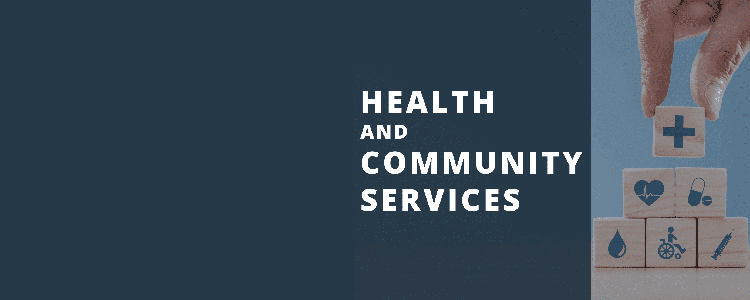||| MIDNIGHT MUTTERINGS by JACKIE BATES |||
I don’t know a lot about anthropology. I did take an undergraduate class in anthropology and I once took a class taught by Margaret Mead. That was a fluke. My first job was working as a lab tech at Delafield Hospital for Cancer Research on the campus of the Columbia University College of Physicians and Surgeons (the medical school). One of the perks that low level (and poorly paid) workers such as myself received was six free credit hour classes at Columbia each semester. One of the classes I took was the one with Margaret Mead. At the time she was the Curator at the Museum of Natural History as well as Professor of Anthropology at Columbia. I had never heard of her. However, at the time I was looking at the options of classes, I read an article about her in the New Yorker and her class met at a time that fit my schedule. That class was an education in itself in so many ways.
But I didn’t learn the term cognitive disuniformity from Margaret Mead. It was from another anthropologist at a different university on the West Coast. That anthropologist was Michelle Z. Rosaldo. I don’t think I took a class from her, but I did go to some of her lectures and read at least one of her books, which seems not to survived all of my many moves around the county. And now I can’t find any mention of the term ‘cognitive disuniformity’ anywhere on the internet, nor can I find the Title of the Rosaldo book that I remember reading and owning all those years ago, when I learned about cognitive disuniformity. Meaning simply that we learn and know and function from different knowledge depending on our power status in the culture.
I did find this quote:
‘The Michelle Zimbalist Rosaldo Prize honors the memory of Professor Michelle Zimbalist Rosaldo (1944, New York – 1981, Philippines), known to her friends and colleagues as Shelly, was a social, linguistic, and psychological anthropologist famous for her studies of the Ilongot tribe in the Philippines and for her pioneering role in women’s studies and the anthropology of gender. Michelle Rosaldo wrote or edited several important works in the anthropology of women and gender relations and co-founded the Program in Feminist Studies here at Stanford University. In 1979 she received Stanford’s Dinkelspiel Award for outstanding service to undergraduate education. Michelle Rosaldo died from an accidental fall while conducting fieldwork in the Philippines in 1981, cutting short one of the brightest anthropology careers of her generation.”
Rosaldo surfaced again in my own consciousness when I was living in Seattle as she was good friends with my next door neighbors at the time she died at age 37. So there was much conversation about her and her work. I was reading a lot of feminist writing then as always. Rosaldo was considered a feminist-anthropologist and well a cognitive-anthropologist (as in how culture influences cognition and beliefs and well as behavior. Still no mention of cognitive disuniformity, though.
So here it is as best as I remember: In any human culture, there are powerful as well as less powerful people and they must ‘know’ different things in order for the culture as well as its power differential to remain intact. That is, the less powerful people in the culture need to know much more about the lives and ways of the powerful in order to survive, while the more powerful have to NOT know much about the lives of the less powerful in order to defend and maintain the status quo.
A couple of easy examples: Sigmund Freud is said to have asked Marie Bonaparte ‘What does a woman want?’ It seems unlikely that Marie Bonaparte asked Freud the parallel question: ‘What does a man want?’ Her very survival would have depended on knowing the answer to that question in order to have reached adulthood alive and well.
As I have mentioned too many times, I grew up in the South where white people, especially men, were powerful in the culture just by having been born white males. And white people of any gender knew little about Black people’s lives. Had they known more, they would have had to change. Change the status quo, possibly change the power differential, or, at the very least, suffer cognitive dissonance and the discomfort of holding two opposing belief systems in one brain. Black people knew everything about white people’s lives. They were in their homes, in the most personal and private aspects of the more powerful white people’s lives in order to survive. Most white people I knew had never been inside a Black family’s home. There would be no necessity for such a visit. Whether they would be welcome is not even an issue. Had white people visited a Black family’s home, learned about Black family life, they would likely have had to change their thinking and feeling, and thus threaten the status quo, the power differential on which to culture depends on for its function. I’m sure Michelle Rosaldo explained cognitive disuniformity more clearly and efficiently. But once one begins to look for it, it’s everywhere, particularly in economic, social, and professional interactions, as well as in race and class status.
I am beginning to see how it functions in political relationships. In how, when we begin to view with empathy, with decency, to listen, to see, we become less comfortable with exercising our power, our judgement of the less powerful people in our lives, in our culture, in cultures other than our own. We begin to question the status quo. We get uncomfortable. Then, I hope, we begin to change.
**If you are reading theOrcasonian for free, thank your fellow islanders. If you would like to support theOrcasonian CLICK HERE to set your modestly-priced, voluntary subscription. Otherwise, no worries; we’re happy to share with you.**









Thanks Jackie for this profound and thoughtful post. Very insightful. There is another train of thinking that links to this: Master Narrative vs Counter Narrative. Master narrative being the predominant story told at any given culture by those in power and counter narrative are the stories told by those last powerful positions. And just as you said in your great post, master narratives are known by everybody, whereas counter narratives are generally only known by the groups in subcultures of a society. I really appreciate your additional way of thinking – cognitive dis uniformity. As you know from being a teacher, there are so many kids in schools who are experiencing that all the time, those kids from the counter or alternative narratives versus the schools, which are the master narrative. This is tragic to think that survival for so many people depends on knowing the master while for so many they float through the world virtually unseen. Thanks again for a profoundly thoughtful post giving me much to think about once again.
Oak, Whew! Am I reading you wrong or is this exactly the same thing with a name I’ve never heard? What’s this about schools? The calendar based on agriculture, with the students needing to be free for farm work in the summer and prom being the biggest deal of the school year based on what? The presentation of debutantes’ to (white) society so they can stay in the powerful group by matrimony? Don’t get me started on sports and fashion (after school uniforms failed to level the playing field), what’s in the lunch box and all the other things I haven’t heard of. And this is in public school, for educating the masses, ‘equalizing opportunity’ on the taxpayer dime. Am trying to think about anthropology, sociology and psychology and their interconnections and differences. Not that I know much of anything about the social sciences (including, I guess, economics, political science, history and probably, gossip.) I won’t mention social media, our latest great idea. jb
cognitive disuniformity– “In any human culture, there are powerful as well as less powerful people and they must ‘know’ different things in order for the culture as well as its power differential to remain intact. That is, the less powerful people in the culture need to know much more about the lives and ways of the powerful in order to survive, while the more powerful have to NOT know much about the lives of the less powerful in order to defend and maintain the status quo.”
The above is so true. Our nation was born out of colonialism, with the status quo (even till this day), being powerful white men preying upon the weak(er), the subservient, in order to maintain the status quo, the(ir) power structure. It is so engrained within our society that many don’t see it, yet it is prevalent everywhere. We see this in our own communities, at the leadership at every level, (all the way to the White House), and on the world stage in our foreign policy.
Bucking the system, the status quo, will get one attacked by many mainstream (news) thinkers around them, from their friends, their relatives, the orthodox clergy, teachers, to police, politicians, and the two-tiered American judicial system… it is “the system.” For change that attributes itself towards the common good is definitely not seen as being favorable to the status quo.
Thank you for your life’s experiences and for your profound observations Jackie… this is much appreciated. This being one of those societal norms that once one’s eyes are opened, that is, once seen, you begin to see it everywhere. A phenomena that I describe in several ways, “When Wall Street is doing well the people aren’t,” and, as you also frame although in a slightly different manner, “Once you see it, you can’t unsee it.”
This is a profoundly insightful and informative write, Jackie. Your clarity shines through and this gives me much food for thought. It’s maddening when important works and books that you KNOW existed because you once owned it, are disappeared from the algorhythms. Yes, they are “disappeared.” I used that purposely. Call me a conspiracy nut but it happens all the time when any research bucks or counters the master narrative.
I love this column. I love your always interesting stories about your life experiences and your thoughts, about what is nearest your heart and what you have observed in life – which is spot on. You must have been a fantastic teacher!
I don’t always get here to comment but Michael Johnson told me to be sure to read this, and I’m glad I did. Let’s keep the conversation (and search) going. Your brillance and spirit shine through all your works, both humorous and serious. Thank you for taking the time and effort for us. Once again, you have ignited my curiosity and inspiration to find the works that buck this system of master/servant class. It’s long past time and the fight seems to be endless for women – this in what is supposed to be one of the most ‘civilized’ countries on the planet.
In line with the subject at hand, my new friend Sarah turned me on to this amazing book today–
Imagination: A Manifesto
In this revelatory work, Ruha Benjamin calls on us to take imagination seriously as a site of struggle and a place of possibility for reshaping the future.
A world without prisons? Ridiculous. Schools that foster the genius of every child? Impossible. Work that doesn’t strangle the life out of people? Naive. A society where everyone has food, shelter, love? In your dreams. Exactly. Ruha Benjamin, Princeton University professor, insists that imagination isn’t a luxury. It is a vital resource and powerful tool for collective liberation.
Imagination: A Manifesto is her proclamation that we have the power to use our imaginations to challenge systems of oppression and to create a world in which everyone can thrive. But obstacles abound. We have inherited destructive ideas that trap us inside a dominant imagination. Consider how racism, sexism, and classism make hierarchies, exploitation, and violence seem natural and inevitable―but all emerged from the human imagination.
The most effective way to disrupt these deadly systems is to do so collectively. Benjamin highlights the educators, artists, activists, and many others who are refuting powerful narratives that justify the status quo, crafting new stories that reflect our interconnection, and offering creative approaches to seemingly intractable problems.
Imagination: A Manifesto offers visionary examples and tactics to push beyond the constraints of what we think, and are told, is possible. This book is for anyone who is ready to take to heart Toni Morrison’s instruction: “Dream a little before you think.”
https://www.amazon.com/Imagination-Manifesto-Norton-Ruha-Benjamin/dp/1324020970/ref=sr_1_1?crid=337ANQYY11TFM&dib=eyJ2IjoiMSJ9._ukBby_poeSRaUby0NNsfrfY7TsiBLhZhH9rhBajiXJlbBvXCP-AivBqtcDES4YZYgiw-HW87tFa_vWJ79MuWWL9zWihFHIL3VmCu0d1MI6IalSHJP8JGyHUO3c8iEKq22LgyG6RJxRwf0hb1wHmsJVVshi0Bns2LE9-lvqS9wTTX2PN_yHCuId0tGh_JrIogomoBInYVjKyS_LRF6fU4Z8uTG00oVZJLelgpszX1AA.h1WqVG3E28WcJ7DN80Ta0YKlZv8eF4kzXQrgYLiffpQ&dib_tag=se&keywords=imagination+a+manifesto&qid=1718689355&s=books&sprefix=imagination+a+manifesto%2Cstripbooks%2C186&sr=1-1
Thank you Michael and Sadie for your comments, and for the resource, Michael. I hadn’t heard the Toni Morrison quote and now I have. It means a lot to me.